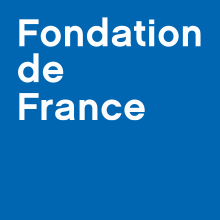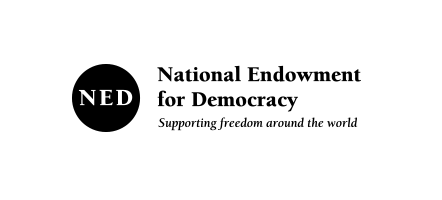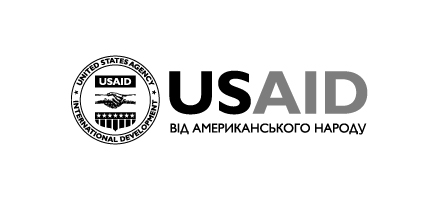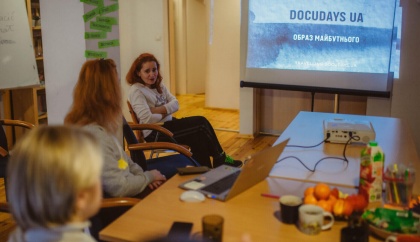
For many years, Nataliya Zhebryk from Dnipro has been involved in human rights education work among young people and adults in her hometown. In 2014 Nataliya. a social skills trainer and art therapist, took a human rights training course, during which she learned about the DOCU/CLUB Network from the “Docudays” NGO. This network unites human rights documentary film clubs all over Ukraine. Having completed the training, Nataliya, according to “Nashe Misto” website, opened a film club in Dnipro at the NGO “Civic Chamber of Ukraine.”
“It was a great idea and opportunity to involve documentary films in working with people,” says Nataliya. “Documentary cinema has become a tool that allows us to educate different audiences about human rights in a creative, imaginative way. Films open people up, and the real-life stories of the film's protagonists encourage us to look at our lives differently and think about what we can change in them. I love combining such serious conversations with art practices.” Nataliya Zhebryk's Docudays UA Film Club has been open for almost 10 years. Its audience has changed and grown along with the moderator: they learned to watch and understand films, studied human rights and the ways to protect them. Nataliya became a mentor and began to share her experience with her colleagues from “younger” film clubs. After the full-scale invasion, she decided to help Ukrainian women abroad. In the spring of 2022, Nataliya Zhebryk, like many millions of our compatriots, found herself in Poland. In Warsaw, near her temporary home, she saw a club that supported refugees from Ukraine. At first, she just went there to help out: she made sandwiches for those who had just arrived in the city, cleaned, volunteered, and then suggested to screen a documentary at the club. Nataliya recalls that first screening: “I thought it would be a good idea to watch the film ‘Language’ by Serhiy Lysenko. This film could become a bridge for understanding between Poles and Ukrainians. Back then, Poles would often ask why so many Ukrainian women spoke Russian, why many of us didn't know our own language. The film answers this question very well,” says Nataliya.
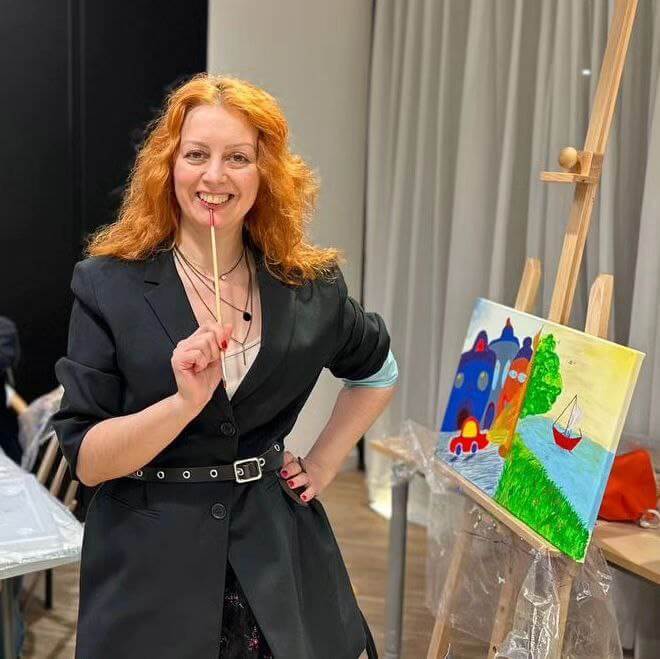
Nataliya Zhebryk This screening brought Ukrainians and Poles closer. It was followed by a very sincere conversation that helped the audience understand each other and find points of intersection and parallels in the history of Ukraine and Poland. “At the beginning of the conversation, it was clear that the Poles were still distant from the war. They were worried about us and happy to help us, but of course they had less emotional response to stories about our events. That is why this conversation was so important. We really managed to reach a higher level of understanding with each other," says the moderator of the meeting. Subsequently, she was offered to join the club's team and start organizing meetings for Ukrainian women in Poland. For over a year, Nataliya Zhebryk has been organizing film screenings in Warsaw for Ukrainian women and teenagers with the support of the Polish Women's Rights Center Foundation. After moving to Poland, she completed two training courses: “Theory and Practice of Art Therapy” and “Children and War. Healing Techniques.” The knowledge she acquired allows her to work with adults and children alike, teaching them how to overcome stressful and traumatic memories, regulate their sleep, and establish a routine. “This experience of changes brought about by the war, of being cut off from our usual places, relatives, and work - none of us wanted to have this experience, but it so happened that we have it. We have to adapt and support each other. I am very glad that I can help with this, in particular, through documentary films,” says Nataliya Zhebryk.
A meeting of the Docudays film club “Potential” According to her, at the film club, women not only receive moral and psychological support, but also discuss issues that affect their safety: “To be honest, I was worried when I suggested watching the film ‘Tales from the Organ Trade’’ by Canadian director Ric Esther Bienstock. It is a difficult yet worthwhile topic. After all, our women abroad are more susceptible to unscrupulous institutions or criminals. They need to know what actions against them are unlawful, where to go in case of danger, and how to protect themselves. I always provide contacts of social services, psychological assistance services, or art therapy support that work in Poland. They are free of charge and can help with advice or information.” All this time, despite the distance and separation from her homeland, Nataliya Zhebryk continues working with the Ukrainian audience. Her film club holds remote screenings not only in her native Dnipro, but also throughout Ukraine: “In the summer of 2022, we started receiving requests for online screenings from my old partners with whom we worked in Ukraine. For example, the Donetsk Youth Center, which in 2014 moved to Kramatorsk, and then to Vinnytsia. I organize meetings for them twice a year, 3-4 film screenings each. I meet with students of the medical faculty of Sumy University at the screenings and discuss the films. We select the topics and films together. It is important to communicate and keep in touch with each other even across borders.” According to the moderator of the film club, the impact of the war on the choice of topics for discussion is very noticeable. In the summer of 2023, there were many requests for mental health topics and ways to support oneself psychologically. The film clubs' audience watched films, discussed the practices and approaches that exist in Ukraine, and learned about European and American experiences that could be adapted. “We watched the film ‘Beautiful Something Left Behind’ by Katrine Philp. I was worried when I showed it to the audience, because this film is about finding ways to cope with loss. Unfortunately, this topic is very relevant for Ukrainians now,” Nataliya Zhebryk shares her feelings. “After every screening, we always discuss emotions caused by what we saw on the screen. My task is to bring the discussion to a practical component: what can be done in a given situation. Focusing on the possibilities is crucial. We live in a traumatic situation, but even so, we can seek support and find a way out.” Nataliya says that art therapy and body practices help a lot in this work. People learn how to do breathing exercises, draw something, find relevant images in the film - this switch to the corporeal or artistic component is healing for the audience. “There are a lot of resources to help now, but not all people know about them or how to use them. The more we talk about it and show positive results, the more people will seek help,” the trainer is convinced. Meeting of the Docudays film club “Potential” “I am interested in trying new things myself. It's interesting to share, it's interesting to work, it's interesting to see people develop. It just so happened that I like being a trainer and supporting others,” Nataliya Zhebryk admits. “The moment came when I realized that I had enough experience, knowledge and skills to share them and pass them on. I know how to do this, and I do it with pleasure.” In addition to screenings and meetings with Ukrainian women, the film club moderator has launched a project to establish Ukrainian-Polish cultural dialogue. “I noticed that many Poles are surprised by our desire to wear embroidered shirts and folk jewelry. So I started the ‘Art of Sewing’ project, which is dedicated to modernization of folk costumes. We want to show that folk clothes can be fashionable, and that one can breathe new life into traditions and classics. We will show and tell the Ukrainian experience to Poles, and then try to do the same with Polish folk costumes and jewelry. It will be an interesting experience.” Photos by Taisiya Zhebryk The development of the DOCU/CLUB Network is funded by the United States Agency for International Development (USAID), the Embassy of Sweden in Ukraine, the National Endowment for Democracy (NED) and Fondation de France. The opinions, conclusions, or recommendations of this publication are those of the authors and compilers and do not necessarily reflect the views of the governments or charitable organizations of these countries. The authors and compilers are solely responsible for the content of this publication.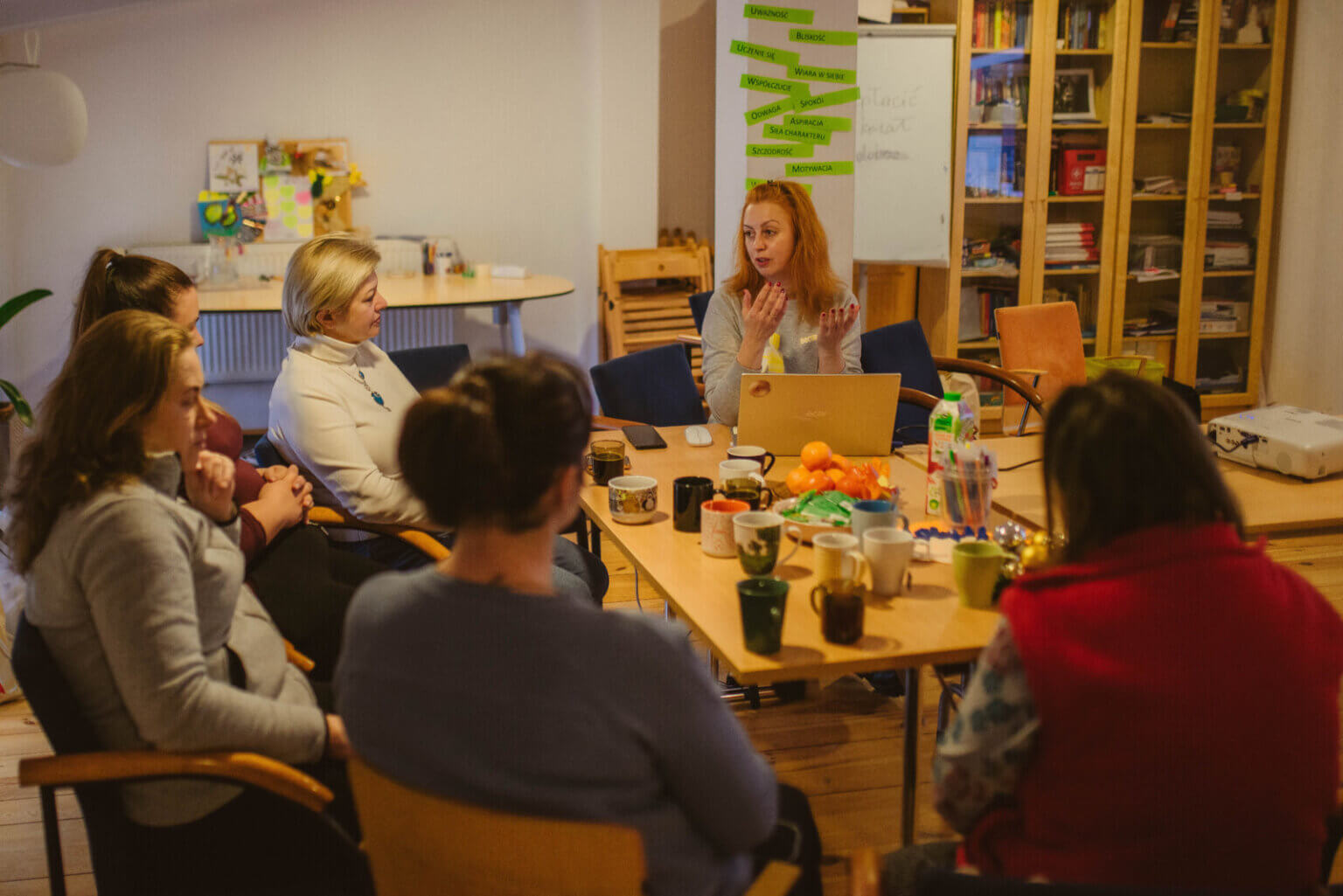
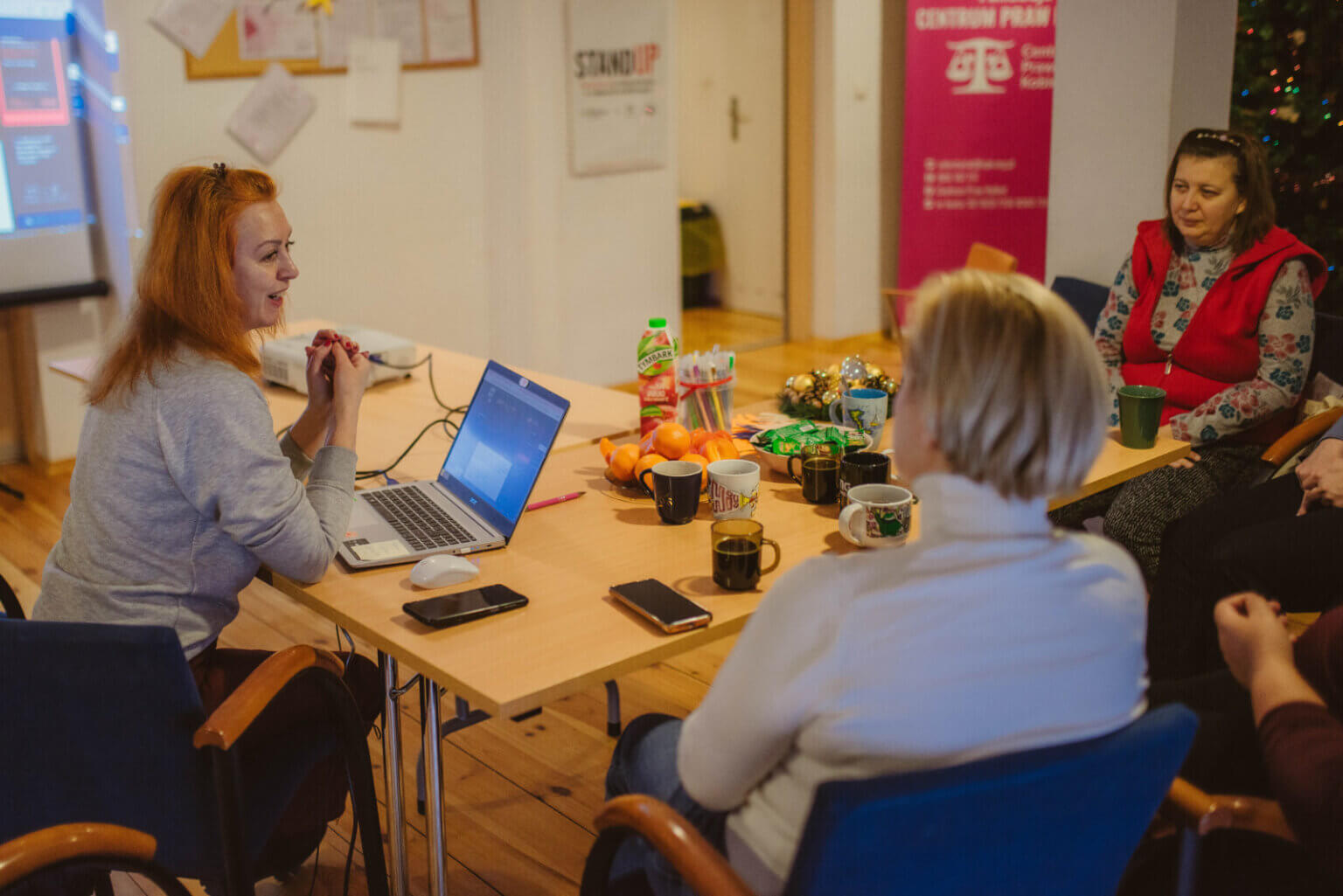
All news

